

When the uniform comes off, many Lexington veterans discover that the toughest missions are the ones fought at home—flashbacks at midnight, chronic pain that won’t quit, and a civilian world that suddenly feels foreign. A standard detox clinic can’t address those layers of combat psychology and unit culture, which is why an integrated veterans rehab center is crucial.
Our program, built by veterans for veterans, delivers evidence-based care alongside the camaraderie and mission-focused mindset that define effective veterans’ rehab. In short, rehab for veterans in Lexington, KY, must be custom-engineered to heal both battlefield wounds and the habits soldiers use to numb them.
Persistent trauma, prescription painkillers, and reintegration stress combine to push service members toward self-medication. The numbers tell the story:
Behind the stats lie real-world triggers: unprocessed combat memories, long waits for VA appointments, and pain-management plans that rely heavily on narcotics. Effective care must therefore pair trauma therapy with medical detox, pain alternatives, and peer support; otherwise, relapse remains a standing threat.
Years of “mandatory fun” and post-deployment toasts turn into nightly six-packs once service ends. Among Kentucky’s former soldiers, binge drinking rates hover nearly 40 percent higher than the state average, fueling liver disease, family conflict, and DUIs.
An alcohol rehab for veterans program must treat more than chemical dependence; it has to dismantle the warrior-culture myths that equate heavy drinking with toughness and unit bonding.
Combat injuries often bring long-term opioid prescriptions. Over time, tolerance climbs, supplies run out, and black-market pills or fentanyl step in. Admissions for drug rehab veterans cite opioid painkillers in roughly one-third of all cases, with stimulants and benzodiazepines close behind.
Effective drug rehab for veterans combines medically supervised tapering, alternative pain management, and peer accountability—essentials for breaking free from both prescriptions and street substitutes.

Flashbacks don’t respect clinic hours. A sudden smell or loud bang can rocket a veteran back to the battlefield, flooding the brain with cortisol. That spike fuels cravings, especially for fast-acting numbing agents like alcohol, opioids, or benzodiazepines. Untreated PTSD, depression, and anxiety each double or even triple the risk of relapse, which is why a dedicated veterans treatment center must address both wounds simultaneously.
Our clinicians deliver trauma-focused CBT, EMDR, and mindfulness before, during, and after detox so the root memories lose their grip as sobriety builds. Psychiatric providers fine-tune medications for mood stabilization while peer groups normalize the roller-coaster emotions common in early recovery.
When combat stress and mental health are treated alongside substance use, veterans gain the resilience to navigate triggers rather than medicate them, transforming short-term abstinence into durable freedom.

The partial hospitalization program (PHP) is our most structured outpatient option, offering full-day treatment four to five days a week. It’s a great fit for individuals transitioning out of detox or residential care who still require daily support to stay grounded and on track. You’ll have a packed schedule of therapy, groups, and wellness activities—all designed to help you stabilize and build momentum in early recovery.

Our intensive outpatient program (IOP) offers strong clinical support without the full-time commitment. You’ll attend therapy several times a week—often in the mornings or evenings—so you can continue working, going to school, or taking care of family. It’s ideal for those who want structure and accountability but are ready for more independence.

The outpatient program is our most flexible level of care, with sessions typically happening once or twice a week. It’s designed for those who’ve already made progress in their recovery but want continued guidance, check-ins, and a safe place to stay connected as life evolves. It’s ongoing support—on your terms.

Virtual outpatient care means you get the same licensed clinicians, evidence-based therapies, and medication support you would in the clinic, but from the comfort of your own home. With a secure video link and a decent internet connection, you can attend group therapy, meet with your counselor, and refill prescriptions without a commute.
For people living in Kentucky’s far-flung counties, telehealth closes the distance that so often stands between someone and treatment.
Our PHP rehab for veterans (Partial Hospitalization Program) bridges the gap between inpatient intensity and living at home. You’ll report to campus five days a week for approximately six hours of treatment per day. Think of it as a daytime deployment focused entirely on recovery.
Mornings start with physician check-ins and medication management, followed by trauma-informed group therapy and skills classes. After a healthy lunch, you’ll rotate through EMDR sessions, pain-management workshops, and holistic options like yoga or art therapy. Evenings are yours to reconnect with family, rest, and practice new coping tools.
This high-touch schedule is ideal if you need hospital-level support without the need for an overnight stay.
Absolutely. Our continuum of rehab programs for veterans extends well beyond PHP.
| Level of Care | Weekly Commitment | Best For |
|---|---|---|
| Intensive Outpatient Program (IOP) | 9–12 therapy hours across three to four days | Transitioning from PHP, balancing work or school |
| Standard Outpatient (OP) | 1–2 individual or group sessions | Ongoing therapy, medication check-ins, relapse-prevention coaching |
| Alumni & Peer Mentoring | Monthly meet-ups, 24/7 phone support | Long-term accountability, community service projects |
Together, these veterans ‘ substance abuse treatment programs create an unbroken safety net from detox through lifelong sobriety. As one of the leading substance abuse treatment centers for veterans in Kentucky, we coordinate every step—transportation, TRICARE billing, even VA hand-offs—so you can focus on healing, not logistics.

Talk interventions, such as Cognitive Behavioral Therapy (CBT), retrain battlefield-conditioned thought loops. At the same time, Dialectical Behavior Therapy (DBT) equips veterans with distress-tolerance tactics for sudden flashbacks and sleep-stealing hyper-vigilance.
For deeper trauma imprints, Eye Movement Desensitization and Reprocessing (EMDR) helps discharge the sensory charge behind memories that often trigger relapse.
Because addiction impacts entire households, weekly family therapy sessions rebuild trust, clarify boundaries, and teach loved ones how to support early sobriety.
Healing doesn’t happen only in a chair. Our adventure and holistic tracks motivate recovery in the Kentucky countryside—rife with marches, rock-wall climbs, breathwork yoga, and equine sessions that restore brain-body balance and reignite purpose.
Nutritional coaching, acupuncture, and pain-management workshops are complementary, providing veterans with practical tools, not just insights.
By blending science-backed interventions with experiential growth, substance abuse treatment for veterans remains engaging, mission-oriented, and tailored to each individual’s learning style. An interdisciplinary team of physicians, therapists, and peer mentors reviews progress weekly, adjusting therapies to ensure that each mission objective, including sobriety, sleep, mobility, and mood, is met with measurable gains.

We manage all pre-authorizations and outline any co-pays before admission begins. If you’re already linked to the Veterans Hospital in Lexington, Kentucky, our admissions team can request a Community Care referral, allowing the VA to cover treatment here while still coordinating your overall care.
For those without TRICARE, private insurance often covers 0–80 percent of costs, and self-pay discounts, combined with interest-free payment plans, make treatment more attainable. No matter your coverage status, a dedicated financial counselor maps out every dollar up front, ensuring money never becomes another battlefield on your road to recovery.
Absolutely. Lexington sits just a short drive up I-75, making it easier for those comparing us with a Tennessee rehab for veterans to choose the program that feels right.
We partner with nearby hotels, offer discounted short-term rentals, and provide access to vetted sober-living homes, ensuring that traveling veterans save on safe lodging during PHP or IOP.
Prefer to stay put until you’re stable? Our telehealth intake, counseling, and family sessions enable you to attend art therapy from the comfort of your own home and then transition to an on-site setting when you’re ready. Whether you’re two hours away or clear across state lines, seamless transportation assistance and virtual check-ins keep your recovery mission on course.

Shared experience is a force multiplier. This built-in camaraderie keeps substance abuse treatment for veterans from feeling clinical or lonely; you’re surrounded by people who already speak your language.
Alumni stay on call for new arrivals, lead weekend hikes, and celebrate every sobriety chip, proving that a passion-driven community can outlast any craving.
The result? Lower dropout rates and higher long-term recovery scores for our evidence-based substance abuse treatment for veterans.





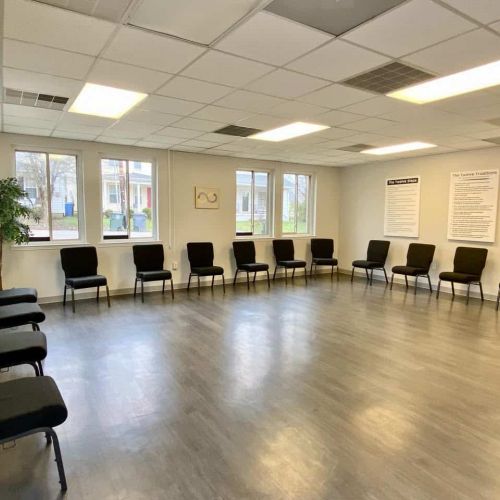





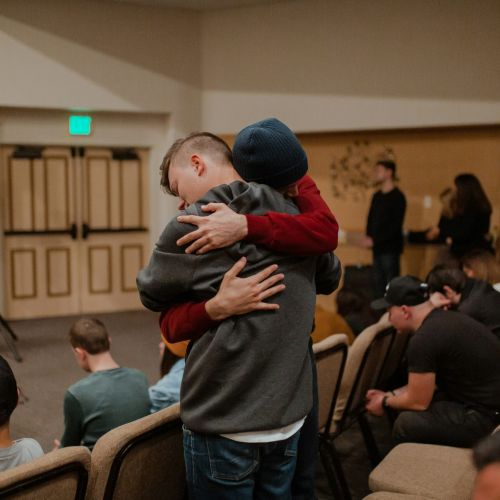

Get Family Support Now
We understand addiction affects the whole family. Our comprehensive family program helps rebuild trust and restore relationships.
Weekly Family Therapy Sessions
Educational Workshops
Support Groups
Communication Skills Training


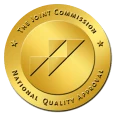



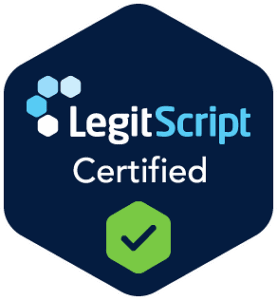
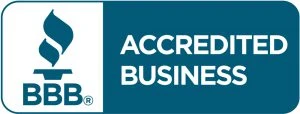






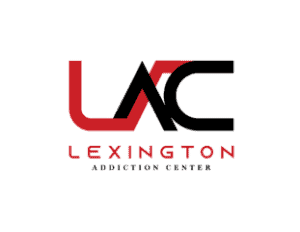
Addiction and co-occurring disorders don’t have to control your life. Lexington Addiction Center is waiting with open arms to give you the tools necessary for lasting change. Reach out to us today to learn more.